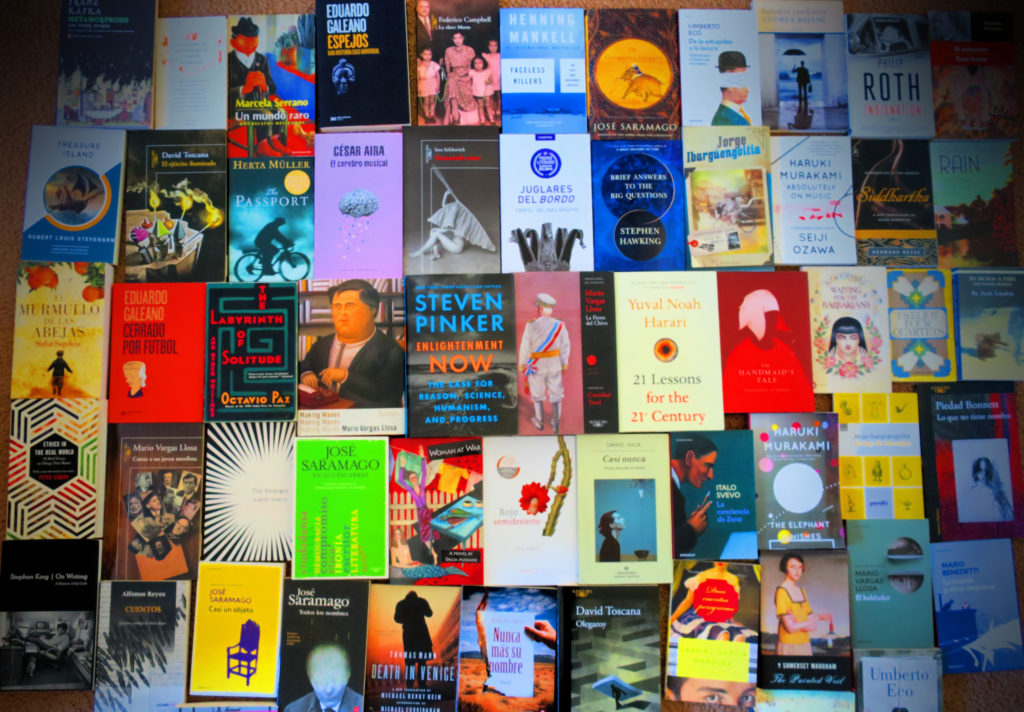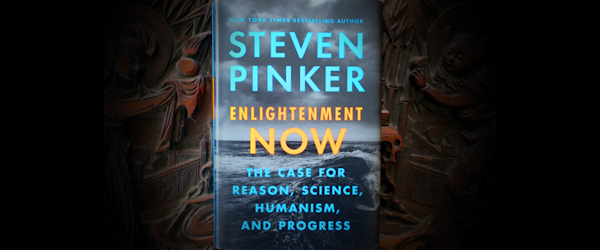 My reading summary for 2018. Total books read: 62. Fiction 74% and non-fiction 26%; 53% in Spanish and 47% in English; 25% female authors, 75% male authors (need to improve balance here).
My reading summary for 2018. Total books read: 62. Fiction 74% and non-fiction 26%; 53% in Spanish and 47% in English; 25% female authors, 75% male authors (need to improve balance here).
The month I read the least was August with only one book, and the month I read the most was November with 9 books. Longest book: 592 pages. Shortest: 94. Average book length: 271 pages.
Favorite fiction book by a female author: “Woman at War” by Dacia Maraini. Favorite fiction book by a male author: “The Elephant’s Journey” by José Saramago and “Zeno’s Conscience” by Italo Svevo. Favorite book of short stories in Spanish: “Juglares del Bordo” by Daniel Salinas Basave. Favorite book of short stories in English: “Rain and other South Sea Stories” by W. Somerset Maugham.
Favorite book of essays in Spanish: “De la Estupidez a la Locura” by Umberto Eco. Favorite book of essays in English: “Making Waves” by Mario Vargas Llosa. Most meaningful book I enjoyed re-reading after 20+ years: “Siddhartha” by Herman Hesse. Newly discovered author in Spanish worth reading: Joel Flores. Favorite non-fiction book: “Enlightenment Now” by Steven Pinker.
Most recurrent authors year after year: Saramago, Mario Vargas Llosa, Daniel Salinas Basave, W. Somerset Maugham, Richard Dawkins, and Eduardo Galeano. Days without reading: 0.

 Often, I hear people say they don’t have time to read books. Their lives are simply too busy that they cannot find any time in the day to make room for reading.
Often, I hear people say they don’t have time to read books. Their lives are simply too busy that they cannot find any time in the day to make room for reading. What do you do the day your invention, the atom bomb, is finally dropped on a city killing millions of people? Do you watch the event on TV with a feeling of total regret by the horrific atrocity your creation caused humanity? No, not at all. Instead, you find yourself at ease playing a string game of cat’s cradle.
What do you do the day your invention, the atom bomb, is finally dropped on a city killing millions of people? Do you watch the event on TV with a feeling of total regret by the horrific atrocity your creation caused humanity? No, not at all. Instead, you find yourself at ease playing a string game of cat’s cradle. Sinclair Lewis’ dystopian political novel
Sinclair Lewis’ dystopian political novel